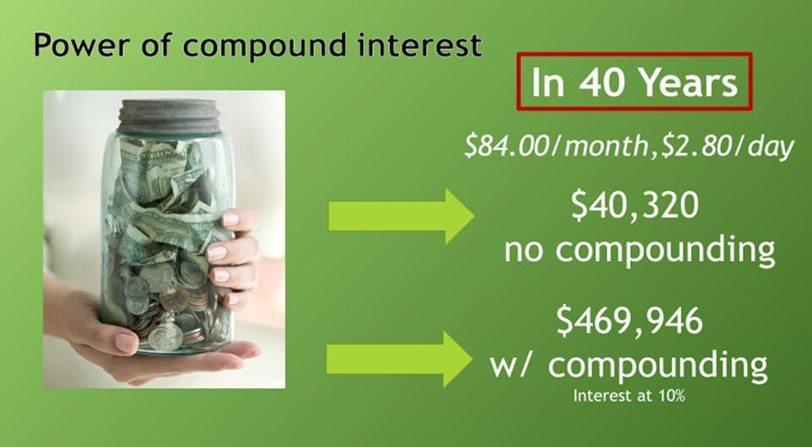What Is a Compound Interest Account? An Explainer
What is a compound interest account? These accounts accrue interest, which is added to the principal to then accrue more interest.
June 24 2022, Published 12:44 p.m. ET

Money compounds much like the coins shown here in compound interest accounts.
One of the first basic tools of personal finance that people learn about is compound interest. Compound interest makes your money grow faster over time, whether in a savings account, mutual funds, or other investments. The concept means that the sooner you begin saving, the more money you’ll make. What is a compound interest account?
Any interest-bearing account that you hold will earn interest, or a percentage of money based on the initial deposit. With a compound interest account, the longer you hold folds in it, the more your investment will grow, because periodically, the interest earned begins to earn interest as well.
That’s what the U.S. SEC calls the “magic of compound interest.” Interest is added to the principal, which makes your next interest payment higher than the one before.

One compounding interest example shows how much investments can grow.
Interest can compound daily, weekly, monthly, or annually.
While many accounts compound interest, they don’t all calculate the compounding on the same schedule. Compounding frequency can vary from daily to annually.
Savings accounts often compound daily, giving the saver more opportunities for their money to grow. However, if accrued interest is only added to existing balances on a monthly basis, the compounding won’t take effect until that interest is credited.
Money market accounts usually compound interest daily or monthly, according to NextAdvisor. Certificates of Deposit (CDs) also compound interest, and they may work on a daily or monthly frequency.
When opening up a compound interest account for savings purposes, be sure to check both the interest rate, the compounding frequency, and how often interest is credited to the account. This will help you predict how much your account will grow over the coming years.
The more frequently your interest compounds, the greater the returns you’ll get on your investment, especially when added up over 20 years, 30 years, or more.
Saving early in life yields greater returns due to compounding interest.
As the Department of Labor explains, starting a habit of saving early in life will bring much greater returns due to compounding interest. One example notes a person that invests $1,000 annually into an IRA from age 20 through 30 will compound to equal $168,514 by age 65, even without adding another dollar of their own money after age 30.
In contrast, a person saving $1,000 annually in an IRA earning the same 7 percent as the first example, starting 10 years later but saving for 35 years total, would have less by age 65. The total in that example is $147,913.
The “Rule of 72” relates to compound interest.
A simple method of calculating how investments will grow is the “rule of 72.” When you know the interest rate on an account, divide 72 by the expected rate of return. The result is the approximate number of years it will take your money to double in value.
For example, on an account earning 7 percent annually, it takes about 10 years for your balance to double. Remember, this is an approximation, and rates of return may not be as expected.
Compounding interest works against you when you borrow money.
While compounding interest benefits you when you’re saving or investing, if you have debt with compounding interest rates, you’ll obviously pay more over the loan term.
